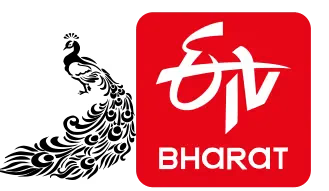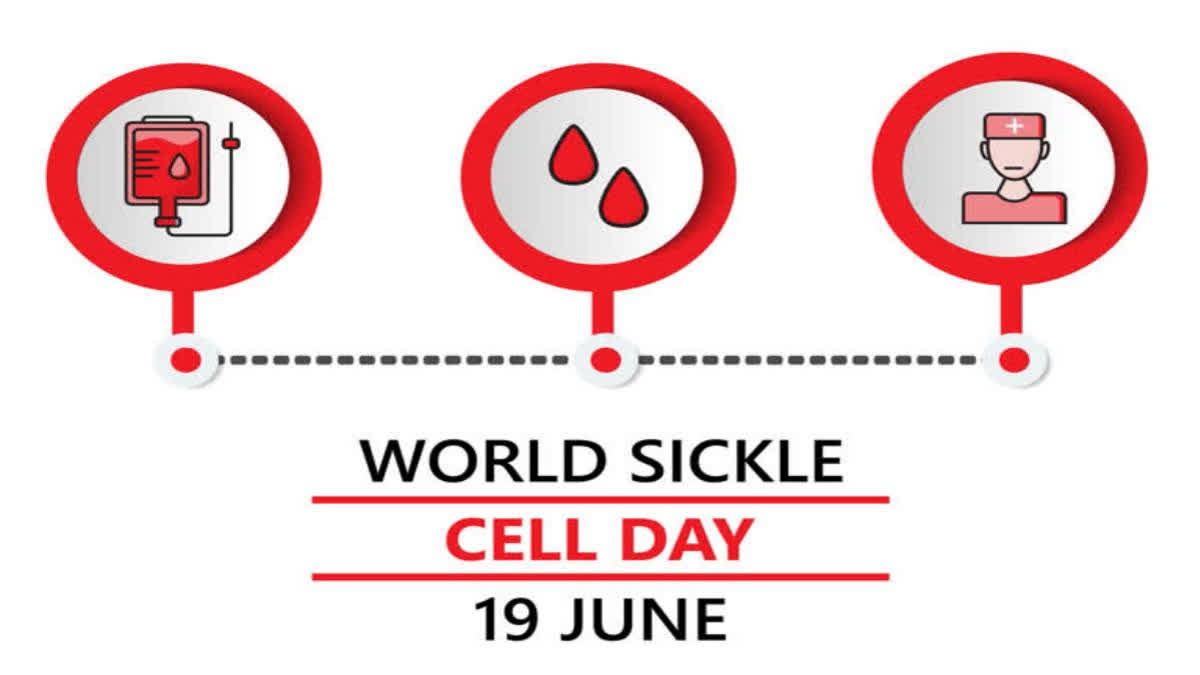New Delhi:The World Sickle Cell Day is an international awareness day observed every year on June 19 to inform people about sickle cell disease (SCD). Various global and local organisations come together during this day to promote awareness campaigns and activities, which recognise the necessity of the early diagnosis of sickle cell disease, its treatment and preventive strategies to avoid the disease.
Sickle cell disease, a genetic condition, is widespread among the tribal population in India where about 1 in 86 births among Scheduled Tribe (STs) have SCD. It affects haemoglobin (responsible for carrying oxygen in the body) in red blood cells, which can result in morbidity and mortality via distinct pathways. Early detection and treatment of SDC is of utmost importance for improved health conditions.
What is sickle cell disease?
Sickle cell disease is a group of genetic red blood cell diseases. It modifies red blood cells’ morphology, which impacts their ability to distribute oxygen throughout the body. The protein known as haemoglobin, which carries oxygen, is found in red blood cells. Healthy red blood cells are round. Red blood cells with sickle cell disease have a genetic abnormality that causes them to take on a crescent or “sickle” shape. It is a chronic single-gene disorder causing a debilitating systemic syndrome characterised by chronic anaemia, acute painful episodes, organ infarction and chronic organ damage and by a significant reduction in life expectancy.
History & Significance
Recognised by the United Nations (UN), World Sickle Cell Day creates global awareness about sickle cell. The resolution of the United Nations General Assembly passed on December 22, 2008, recognised sickle cell disease as a public health hazard and "one of the world's main genetic illnesses." The resolution calls on members to create sickle cell disease awareness on a national and international scale on June 19 each year.
Sickle cell disease is one of the majorly occurring monogenic diseases (over 3,00,000 affected births worldwide). The majority of them are seen in low-and middle-income countries. Dedicating a specific day for sickle cell disease ensures the comprehensive awareness that could be brought out across individuals, population, services and systems levels.
Theme For This Year
The theme for this year's World Sickle Disease Day is "Hope Through Progress: Advancing Sickle Cell Care Globally". It's a call to highlight by coming together, through everyone's amplified voices, by creating awareness, reducing stigma and driving meaningful change for the millions affected by this disease.
Indian Perspective
India has the world's second-greatest sickle cell disease burden, affecting socially, politically and economically marginalised people, particularly scheduled tribes. Under the National Health Mission, the Government of India supports the states for the prevention and management of sickle cell disease as per their annual PIP proposals. The Ministry has also released technical operational guidelines for the prevention and control of hemoglobinopathies in 2016, including sickle cell anaemia. Furthermore, in terms of treatment, support is given under NHM for capsule hydroxyurea and free blood transfusion for all sickle cell patients (men & women) as per the state’s proposal.


